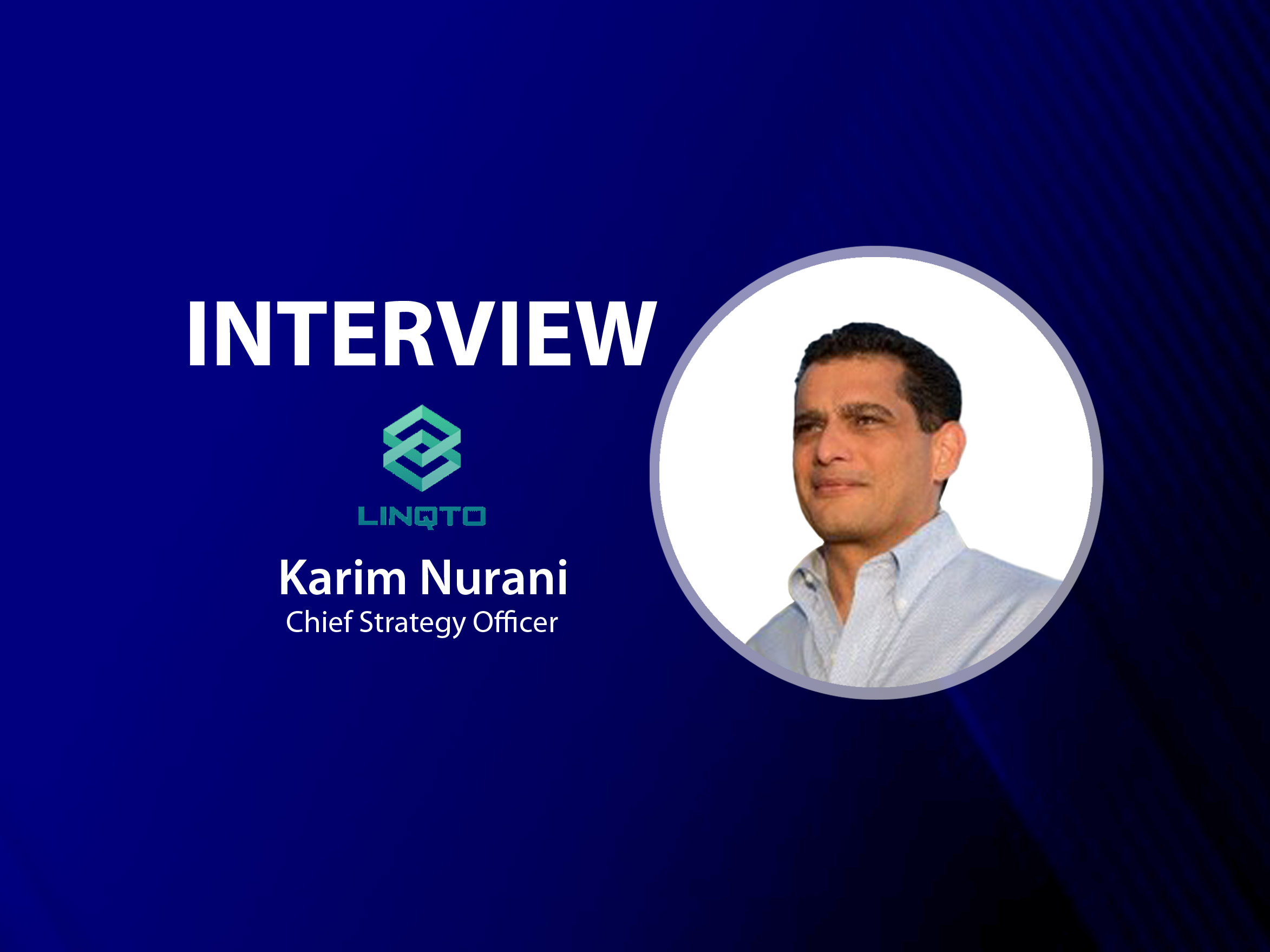 Emerging countries have seen a rise in mobile-enabled Fintech with them focusing more on P2P Mobile payment innovations while the European region has been moving towards open banking systems, catch more of these region-wise observations when it comes to the evolving fintech segment that Karim Nurani, Chief Strategy Officer at Linqto, Inc. talks about in this latest interview.
Emerging countries have seen a rise in mobile-enabled Fintech with them focusing more on P2P Mobile payment innovations while the European region has been moving towards open banking systems, catch more of these region-wise observations when it comes to the evolving fintech segment that Karim Nurani, Chief Strategy Officer at Linqto, Inc. talks about in this latest interview.
_____
Hi Karim, welcome! Can you tell us a little about yourself and a little about Linqto, Inc…
I am an entrepreneur, investor, and chief strategy officer of Linqto, a leading platform providing liquidity in the private sector. I have 30 years of experience in new business development with a focus on strategy and business transformation. As a visionary who can assess business models from the perspectives of both an executive and investor, I am responsible for the formation and success of over a hundred startups ranging from mining to process manufacturing. As a partner at Keiretsu Connect, and throughout his time with Bay Angels, Sandalwood Ventures, and other entities, I guided investors and new venture leaders to the launch and development of markets as diverse as IoT, GreenTech, CannaTech, AR and VR and more.
Read More: GlobalFintechSeries Interview with Vijay Ramnathan, President at MineralTree
As someone whose been part of the SaaS industry for a while, we’d love your thoughts on how you’ve seen the industry evolve with time – different segments: what are some of the common innovations you’ve seen across segments in tech?
A powerful example of SaaS, PaaS, and IaaS is Amazon.
B2C SaaS would include consumer favorites: Netflix, Spotify & Amazon Prime, Uber, Airbnb. These companies provide individuals with an efficient cost-effective way to tap into commercial experiences by digitally eliminating countless friction points. Their services allow for ease of purchase, local experience and payment, and access across boundaries. As users, we need to keep in mind that the use of these technologies allows the providers to collect thousands of data points about us individually and collectively as a community, culture, or demographic. However, this information allows for business decisions which ultimately benefits the end-user, and companies have protocols to safely acquire this data.
Google, Slack, Shopify, and Zendesk are also great examples of B2B SaaS. Their goals and services are to help businesses improve productivity, increase sales, and achieve growth. The data being collected here will provide trends for commerce, payments, value & potential disruptions in a particular business or a business segment. These could be leading indicators for future growth or changes in consumer behavior.
AI & Machine learning will continue to play an important role in these sectors – probably the most important development will be the use of predictive analytics and hyper-personalization.
How have you seen the fintech/finance segment specifically evolve over the years?
Depending on which part of the world we are looking at, there have been specific advances in the Fintech / Finance space that are particularly important. As an example, emerging countries like Africa & Latin America have seen exponential growth in mobile-enabled Fintech. These countries have completely leapfrogged the need for the internet and focused on P2P Mobile payments, remote banking primarily due to the fact that most of the population are unbanked and underserved but still need to make financial transactions. Furthermore, there is an extraordinary effort by both the World Bank & IMF, especially in Africa, in enabling new technologies to enhance financial services due to the limited physical infrastructures. We are likely to see rapid developments in the fintech and technology industries to improve security yet allow for transparency and efficiency.
Europe and Central Eastern Europe are also moving quickly towards open banking standards. The practice of sharing financial information electronically and securely will allow third-party providers to access financial information more efficiently which should lead to a more cost-effective method to manage money.
Lastly, South East Asia continues to develop and advance in RegTech, blockchain, virtual banking, and digital currencies.
Read More: What You Need To Know About SOC 2
Given the effects of the ongoing Covid-19 pandemic, how do you see it impact the need and demand for financial services/ financial apps at the individual level.
COVID-19’s most fundamental impact on the financial services will be most apparent by the failures and inefficiencies that are discovered by individuals and businesses that are dependent on the seamlessness of such services. They are now discovering the expenses and friction points that may have been annoyances previously but are now considered to be a serious handicap to its users.
As an example, look at the crash that Robinhood experienced during the stock market meltdown – it was primarily due to the number of users that were using the App – this did not deter the company but allowed them to improve the technology to handle heavy usage.
When it comes to fintech needs – payment apps, contactless payments will now grow in demand; what are your thoughts in terms of how this segment will now evolve as a result of the world crisis.
During the crises many of us needed to learn how to better use mobile payments and adapt to online commerce sites. There has been an accelerated adoption and learning curve for cashless pay applications such as Venmo, Apple Pay, Google Pay, Samsung Pay, using credit/debit cards>
I think the US has been lagging behind in this particular sector of the Fintech space as compared with Europe, Africa, and Asia.
Read More: The Rise of Contactless Payments
How do you see emerging tech play a key role in how newer fintech innovations are built/developed, especially account receivables and payment apps?
Driving forces for future companies will be the adoption of emerging technology as products continue to be developed in the FinTech arena. These products will further and better connect people and data in real-time, across international boundaries, and use blockchain and AI technologies to enhance security and improve efficiency and accuracy.
If the current Work from Home trend continues and if a significant portion of employees choose to work remotely, it will become very interesting to watch how large corporations shift their financial responsibilities to the employees in regards to perks and benefits. This will ultimately require a higher need for transparency and automation.
When it comes to streamlining and optimizing the payment delivery and the accounts receivables process: what are some of the top features that business users should look for when they identify/shortlist fintech platforms?
- Automation – Thorough tracking of E-billing, reminders, and payment receipt will all be essential to automate and track transactions. Friction points that will reduce the ability to collect are errors, disputes, resolutions, pre-legal collection, and any friction point that delays the payments past 30 days.
- Personalization – This is vitally important because the responses and call to action, which in this case is payment, is more successful if you actually know your customer and show that you care. This can be better implemented using AI or Machine Learning technologies.
- Code Driven – Due to the complexity of today’s cross border and international transactions, there will be a greater need for currency compliance that needs to be accounted for. The less opportunity for mistakes – thus fewer disputes – make this a particularly important aspect.
- Payment Options – It will become necessary to intimately understand payment terms in each country that you are doing business in because different countries are oriented towards culturally biased business practices. Understanding this and then programming communications and collections towards this is particularly important to achieve greater success.
How do you think the payment-as-a-service niche will evolve with time to meet the needs of both B2B users and individual business owners over the years?
PaaS will continue to evolve to connect users with providers across the world through various currencies to include emerging markets such as Latin America, East Asia, and Africa. This evolution will require highly efficient, competitive, and intelligent platforms. There will be a stronger need for AI, Machine Learning, ChatBots to be more fully integrated into the new platforms.
The companies will need to figure out effective strategies to combat fraud, returns, dispute resolutions, chargebacks, and currency fluctuations. However, these are all costly endeavors confronted with global competition, making the act of balancing and fulfilling these needs quite tricky.
Read More: GlobalFintechSeries Interview with Garima Shah, President at Biller Genie
Tag (mention/write about) the one person in the fintech industry whose answers to these questions you would love to read!
I would actually like to Tap Bill Sarris CEO of Linqto who has been developing solutions in the FinTech and financial services space for over 20 years!
Your favorite FinanceTech quote :
- On success: “The most successful businesses have an idea for the future that’s very different from the present.” Peter Thiel – Co-founder of Paypal
- Quality is not an act it is a Habit – Aristotle
- No Great thing is created suddenly – Epictetus
- Those who don’t want to change let them sleep – Rumi
Would you like to share specific finance or business tips for Marketing and Sales teams struggling through this uncertain time?
Take a breath and go outside! Schedule an hour in your day that you are not doing anything except taking care of yourself like taking a walk, or yoga or just sitting around in your back yard or porch. Our mind needs space to digest all the inputs that we are getting from our days that often include various meetings and family obligations. Online meetings can be exhausting and the COVID-19 pandemic is a disease we can never have imagined. Our lives and those close to us have changed in unimaginable ways. Therefore, it is important we prioritize time to mentally and spiritually adjust to these situations.
I also recommend spending at least 2-3 hours a week reading about economics and business development in emerging countries. The challenges that exist in other countries are real and the development of its strategies and technologies may have a meaningful impact on what you do here now.

Linqto is a leader in liquidity in the private sector, providing accredited investors access to affordable investment opportunities in the world’s top unicorns. Traditionally, only 2% of the world’s accredited investors have legal access to the world’s private markets. Linqto utilizes a technology-enabled platform to address this issue by providing a liquid investing environment for the other 98% to also invest in unicorns before they go public. Their platform ultimately makes the private securities asset class accessible, while reducing costs and saving time with the flexibility of trading directly on the mobile app.
Karim Nurani is an entrepreneur, investor, and chief strategy officer of Linqto, a leading platform providing liquidity in the private sector.
